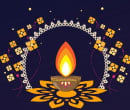
-
Customer Care 9999 091 091
- Consult Now
-
Notifications
-
Pitru Paksha period starts after the Anant Chaturdashi. It is also known as Shraad, and it lasts for 16 days. This year the festival will be started from 7th September 2025, Sunday to 21st September 2025, Sunday, This period is extremely important for the Hindus in the country as it is a period when they pay their respects to their ancestors.
 Pitru Paksha Muhurat
Pitru Paksha Muhurat
 Pitru Paksha Muhurat
Pitru Paksha Muhurat
Purnima Tithi Begins - 01:41 AM on Sep 07, 2025
Purnima Tithi Ends - 11:38 PM on Sep 07, 2025
Purnima Tithi Begins - 11:06 PM on Sep 25, 2026
Purnima Tithi Ends - 10:18 PM on Sep 26, 2026
Purnima Tithi Begins - 02:48 AM on Sep 15, 2027
Purnima Tithi Ends - 04:32 AM on Sep 16, 2027
Purnima Tithi Begins - 02:51 AM on Sep 03, 2028
Purnima Tithi Ends - 05:16 AM on Sep 04, 2028
Purnima Tithi Begins - 08:17 PM on Sep 21, 2029
Purnima Tithi Ends - 09:58 PM on Sep 22, 2029
Purnima Tithi Begins - 03:39 AM on Sep 11, 2030
Purnima Tithi Ends - 02:47 AM on Sep 12, 2030
Purnima Tithi Begins - 02:32 AM on Sep 30, 2031
Purnima Tithi Ends - 12:27 AM on Oct 01, 2031
Purnima Tithi Begins - 06:42 PM on Sep 18, 2032
Purnima Tithi Ends - 02:59 PM on Sep 19, 2032
Starting on 07th September, this festival lasts for 16 days, where Hindus perform numerous rituals with a great deal of devotion. According to the scriptures of the Hindu religion, this festival is celebrated to offer obeisance to the departed souls of our near and dear ones, hoping that they have reached a happier place beyond the realm of human existence. These days are a period of mourning where different pujas, daans, and rituals are performed in order to pay homage to our forefathers, wishing that they attain liberation from the cycle of life and death and reach the permanent abode of heaven.
This festival is a mark of respect towards those who have left us. As a consequence, the rituals performed on this day have to be carried out with utmost care and sincerity. We have hence, listed the puja vidhi down below:
During Shraad, rituals are performed on the tithi when the ancestor dies, as per the lunar calendar.
Those who are performing the puja have to get up early and take a bath.
The person performing the puja has to bear a ring made out of darbha grass.
Sit in the place of worship and make sure your surroundings are calm and peaceful.
Invoke the ancestors following this.
The person performing the puja wears a sacred thread, and the position of this thread is changed multiple times while conducting the puja.
Perform a pind daan where water is taken in both hands and slowly released.
Special food is prepared on this day using a satvic recipe. This food is then fed to the cows, the dogs, the crows, and the ants.
The food is also offered to the ancestors by putting it in the fire of the havan kunda.
Brahmins are offered this food as well, along with dakshina.
Join hands and pray for the ancestors to achieve liberation and seek their blessings.
Charitable actions performed during this time are said to be greatly rewarded.
In India, a lot of significance is granted to our culture and historical heritage. In the religion of Hinduism, therefore, a period of time is set out to pay our respects to our ancestors each year. This period is known as Shraad, and it falls in the Chaturmaas period, as per the Hindu Panchang. The scriptures state that this is the period when souls of the departed wander around the world in search of liberation. Hence, in order to make sure that these souls find peace and bless those who are still alive, Hindus perform the rituals associated with this festival. It is a way of repaying our dues to their ancestors who are no longer among us. This mourning period starts on the Purnima Tithi or the full moon day during the Krishna Paksha or the waning phase of the moon, in the Ashwini month.
Rituals of Shraad are performed according to the lunar calendar. The date of the puja is determined based on the tithi that the ancestor died. There are, however, some exceptions to this rule. Some specific days are allotted for performing the puja for deaths under special circumstances. Let us take a look-
Chautha Bharani and Bharani Panchami, or fourth and fifth lunar days are set out for deaths in the past year.
The ninth lunar day or Avidhava Navami is for the women who died before getting married.
Children and ascetics are offered prayers on the twelfth lunar day.
Those who died unnatural deaths are paid homage on the fourteenth lunar day or Ghata Chaturdashi.
If one does not know the tithi of someone’s death, then the Shraad is performed on the Sarvapitri Amavasya.
The duration of this festival is a time when families come together and pay respects to their ancestors by performing certain rituals. Doing so helps the souls of the departed in finding peace in the afterlife. Let us see what these rituals are-
According to the scriptures, the one who performs the rituals is called karta. This person has to be the eldest son of the family; if not, a male relative from the paternal side of the family performs these rituals. However, the eldest daughter might also perform the rituals on matamata, if there is no male member available.
Brahmins are offered food and drinks to get their blessings. People display hospitality by inviting the brahmins into their homes for bhoj during these Pitru Paksha dates & time.
Another ritual that is crucial for performing the death rites of the person is pind daan. As per Hinduism, there is the belief that one’s soul can remain trapped in the material world even after death due to emotional attachment. This ritual is thus performed to free the soul and help it in finding salvation.
Devotees from around the country visit the banks of the river Falgu in Gaya to offer Pinda to their ancestors.
On Sarvapitri Amavasya, the Karta takes the names of all forefathers across three generations. This ritual is deemed important to reinforce the familial bonds throughout history.
Pitru dosha is very significant in astrology as its presence in a native's birth chart can deprive them of all things auspicious. It is a karmic debt of the past generations that becomes the obligation of the current one. This dosha in someone’s horoscope appears when their ancestors might have unwittingly committed evil deeds. These past deeds appear as a debt in the future generations’ horoscope. In order to rid an individual of this dosha and its ill effects, the rituals of Shraadh are performed.
According to the epic Mahabharata, Karna died on the seventeenth day of the great war. He went to heaven where he was offered jewels and ornaments as food. Bewildered by this, he went to Lord Indra to know the reason behind this treatment. The Devraj informed him that this was due to his charitable actions during his lifetime. However, his only sin was that he never gave food to his ancestors. Karna instantly repented his actions and sought advice on how to rectify his errors.
Karna was offered a period of fifteen days to visit the Earth and make the offerings of Shraad to his ancestors. He descended upon the mortal world and offered food and drinks to his ancestors in order to appease them. He returned back to heaven after that, and since then, this period was dedicated to the ancestors.
Hindus believe in the idea of life beyond death. As a consequence, this period was set out to ensure that our ancestors gain salvation after death, moving out of the cycle of life and death!
To know more about the Pitru dosha, get expert guidance from astrologers at Astroyogi!






| Date | Monday, 14 April 2025 |
| Tithi | Krishna Pratipada |
| Day | Monday |
| Paksha | Krishna-Paksha |
| Sunrise | 5:57:8 |
| Sunset | 18:46:57 |
| Moonrise | 20:7:34 |
| Nakshatra | Swati |
| Nakshtra Till | 24 : 14 : 26 |
| Yog | Vajra |
| Yog Till | 22 : 38 : 43 |
| Karan I | Kaulav |
| Surya Rashi | Pisces |
| Chandra Rashi | Libra |
| Rahu Kal | 07:33:21 to 09:09:35 |